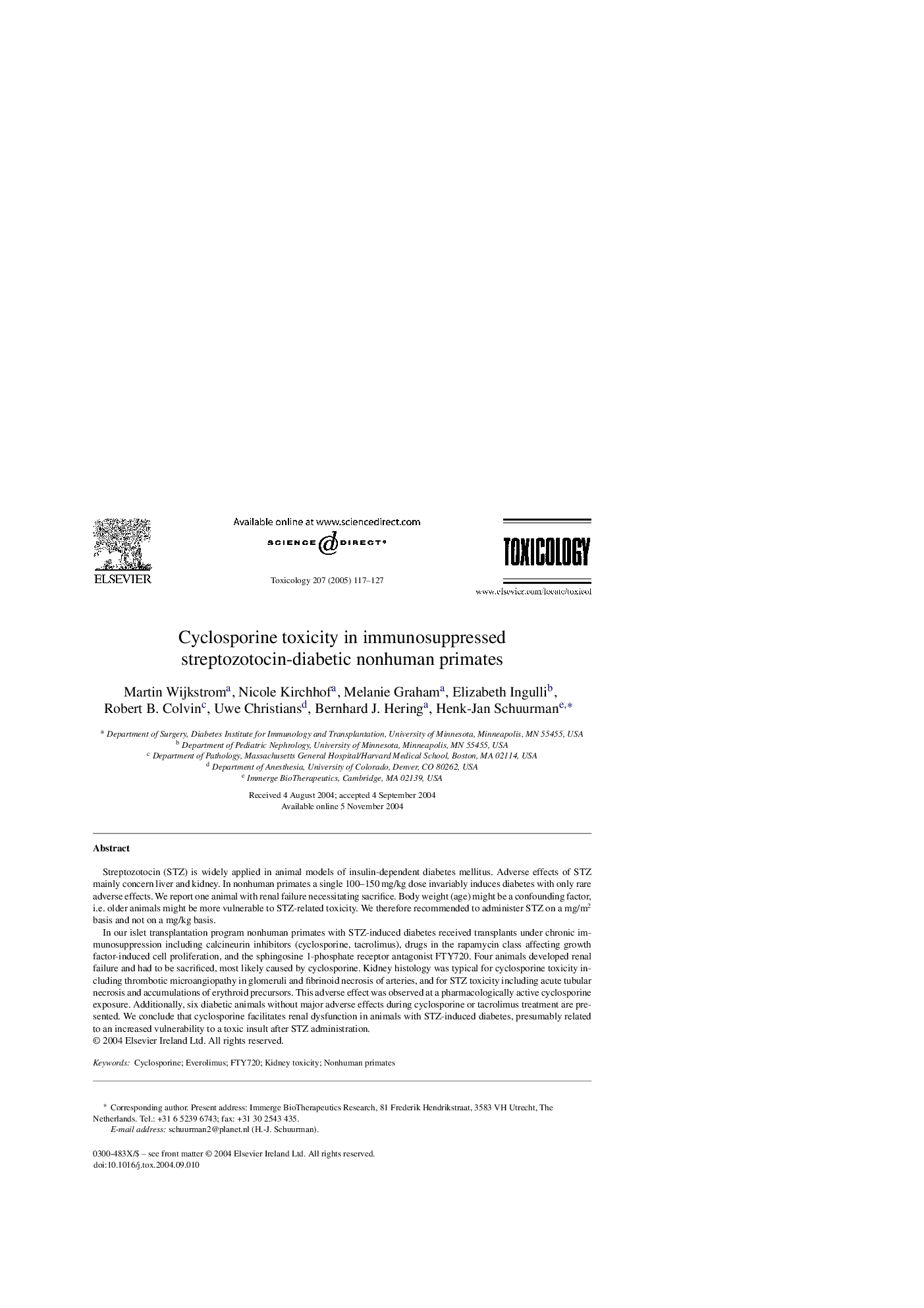| Article ID | Journal | Published Year | Pages | File Type |
|---|---|---|---|---|
| 9034509 | Toxicology | 2005 | 11 Pages |
Abstract
In our islet transplantation program nonhuman primates with STZ-induced diabetes received transplants under chronic immunosuppression including calcineurin inhibitors (cyclosporine, tacrolimus), drugs in the rapamycin class affecting growth factor-induced cell proliferation, and the sphingosine 1-phosphate receptor antagonist FTY720. Four animals developed renal failure and had to be sacrificed, most likely caused by cyclosporine. Kidney histology was typical for cyclosporine toxicity including thrombotic microangiopathy in glomeruli and fibrinoid necrosis of arteries, and for STZ toxicity including acute tubular necrosis and accumulations of erythroid precursors. This adverse effect was observed at a pharmacologically active cyclosporine exposure. Additionally, six diabetic animals without major adverse effects during cyclosporine or tacrolimus treatment are presented. We conclude that cyclosporine facilitates renal dysfunction in animals with STZ-induced diabetes, presumably related to an increased vulnerability to a toxic insult after STZ administration.
Related Topics
Life Sciences
Environmental Science
Health, Toxicology and Mutagenesis
Authors
Martin Wijkstrom, Nicole Kirchhof, Melanie Graham, Elizabeth Ingulli, Robert B. Colvin, Uwe Christians, Bernhard J. Hering, Henk-Jan Schuurman,
